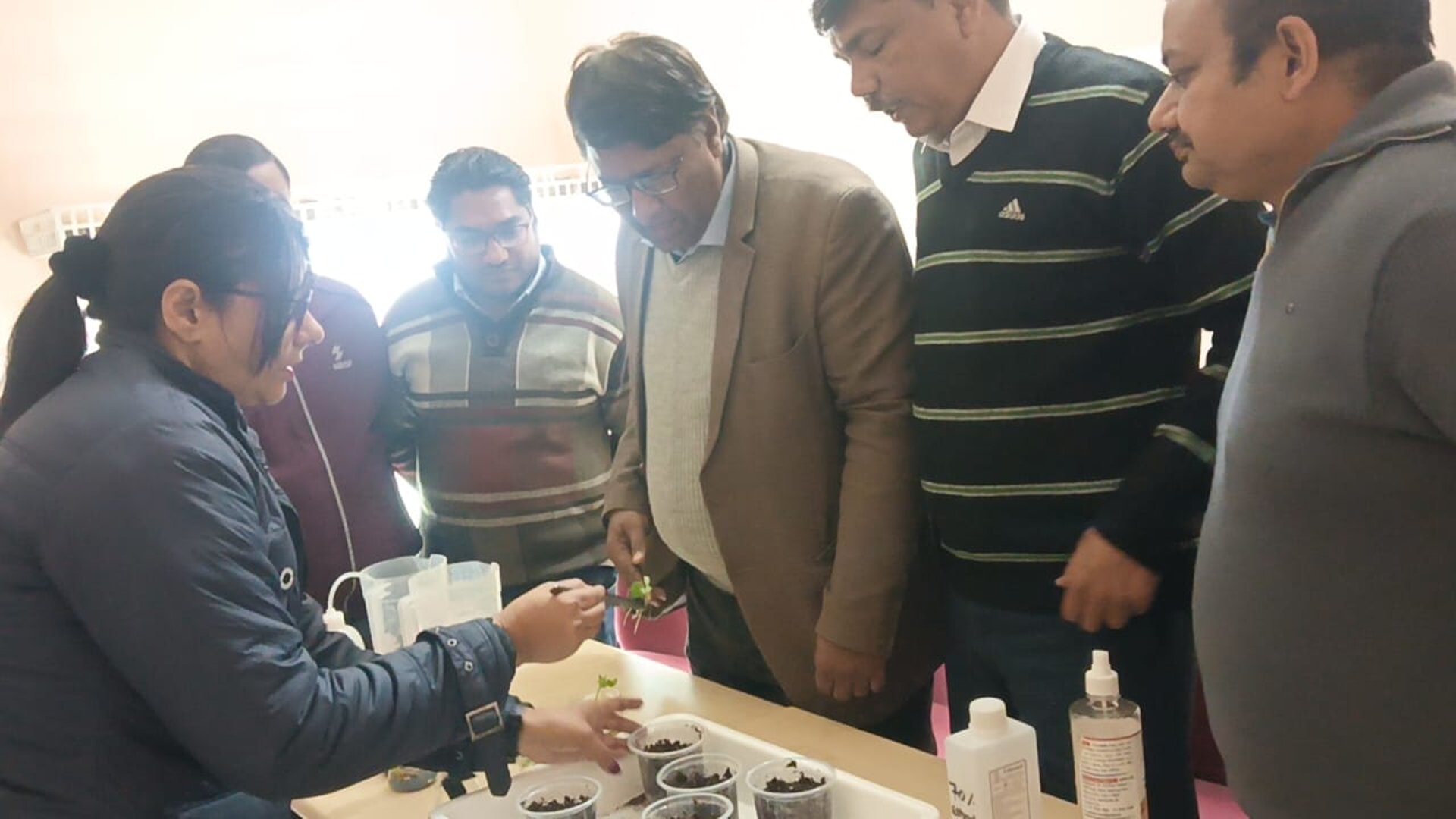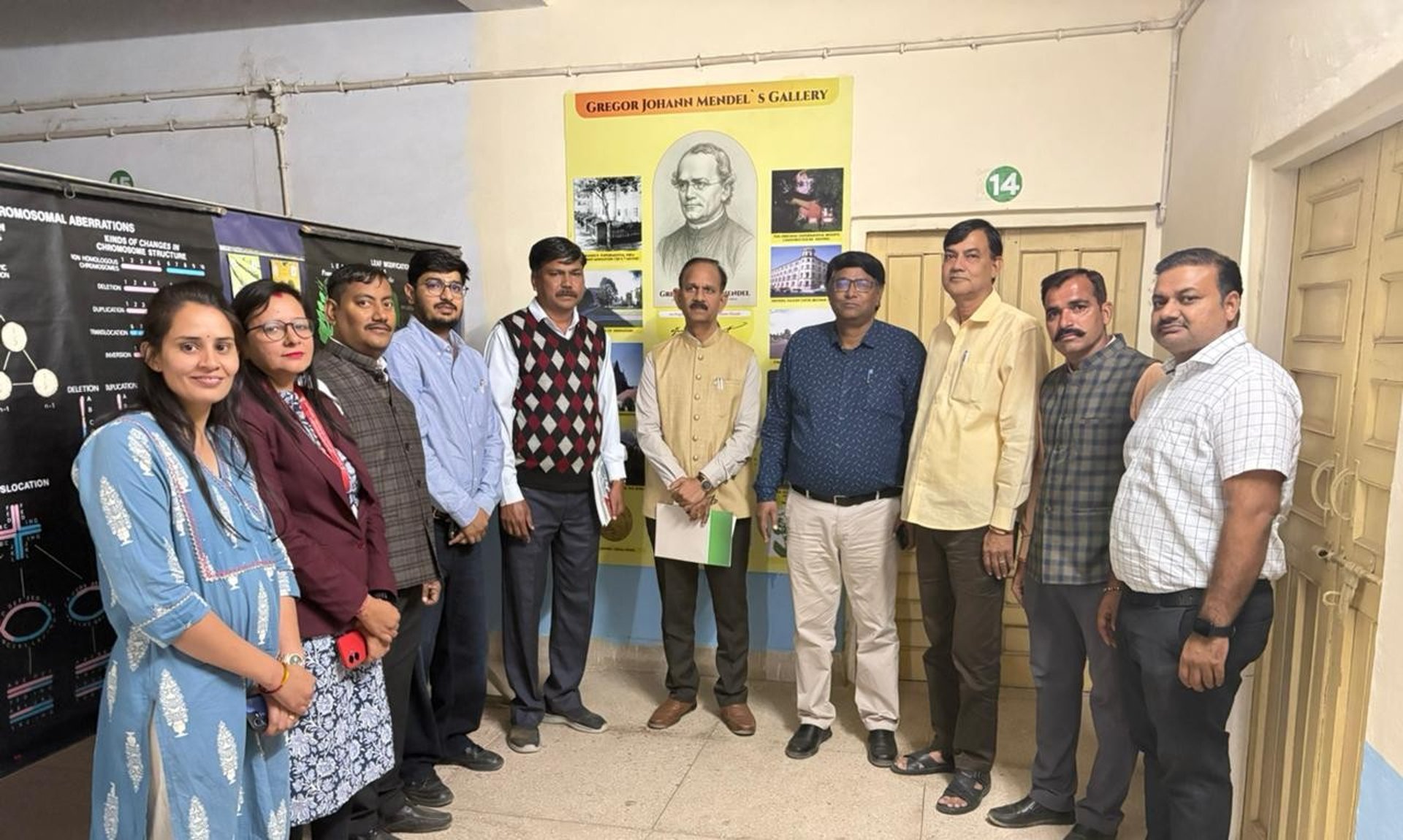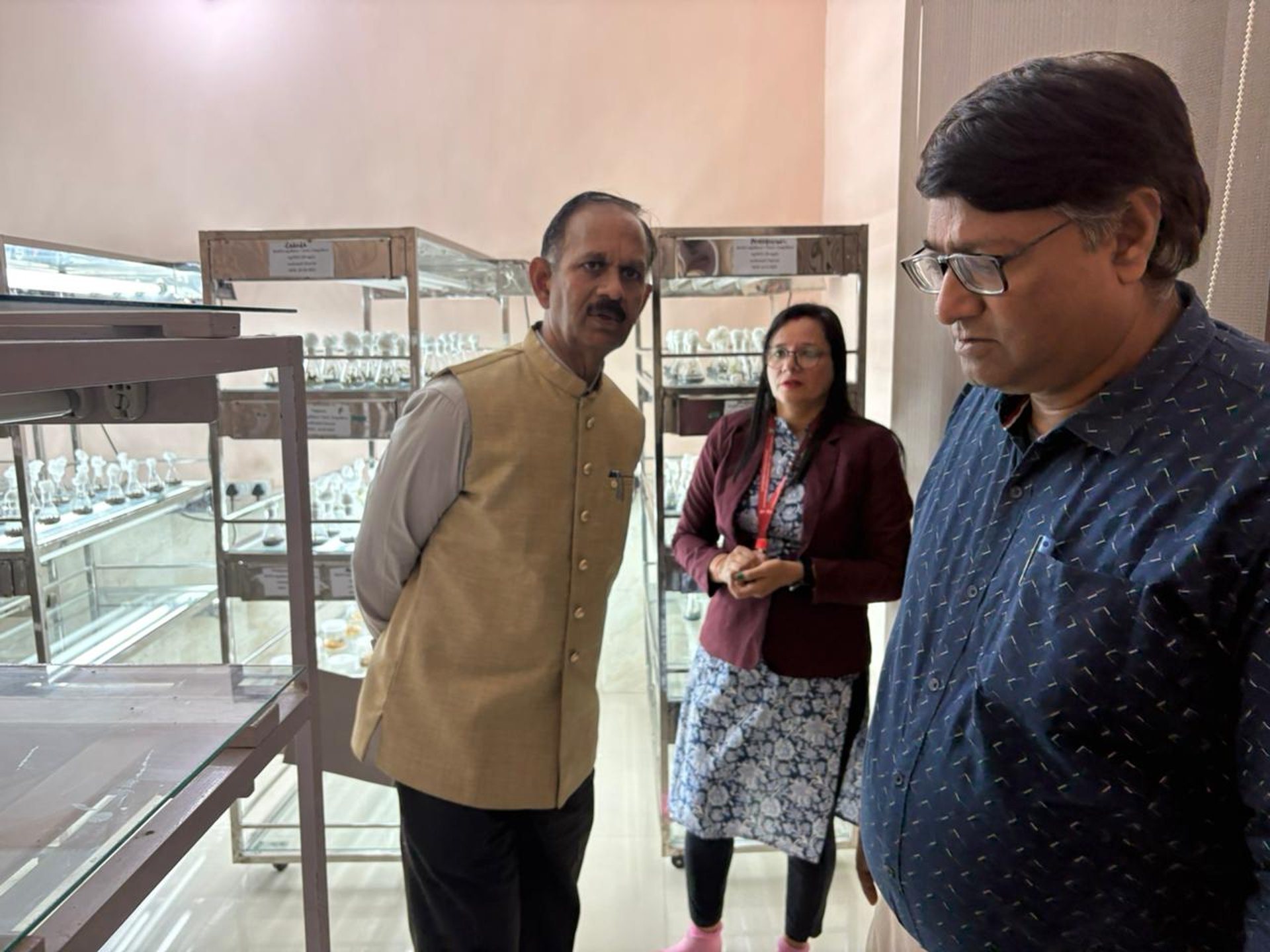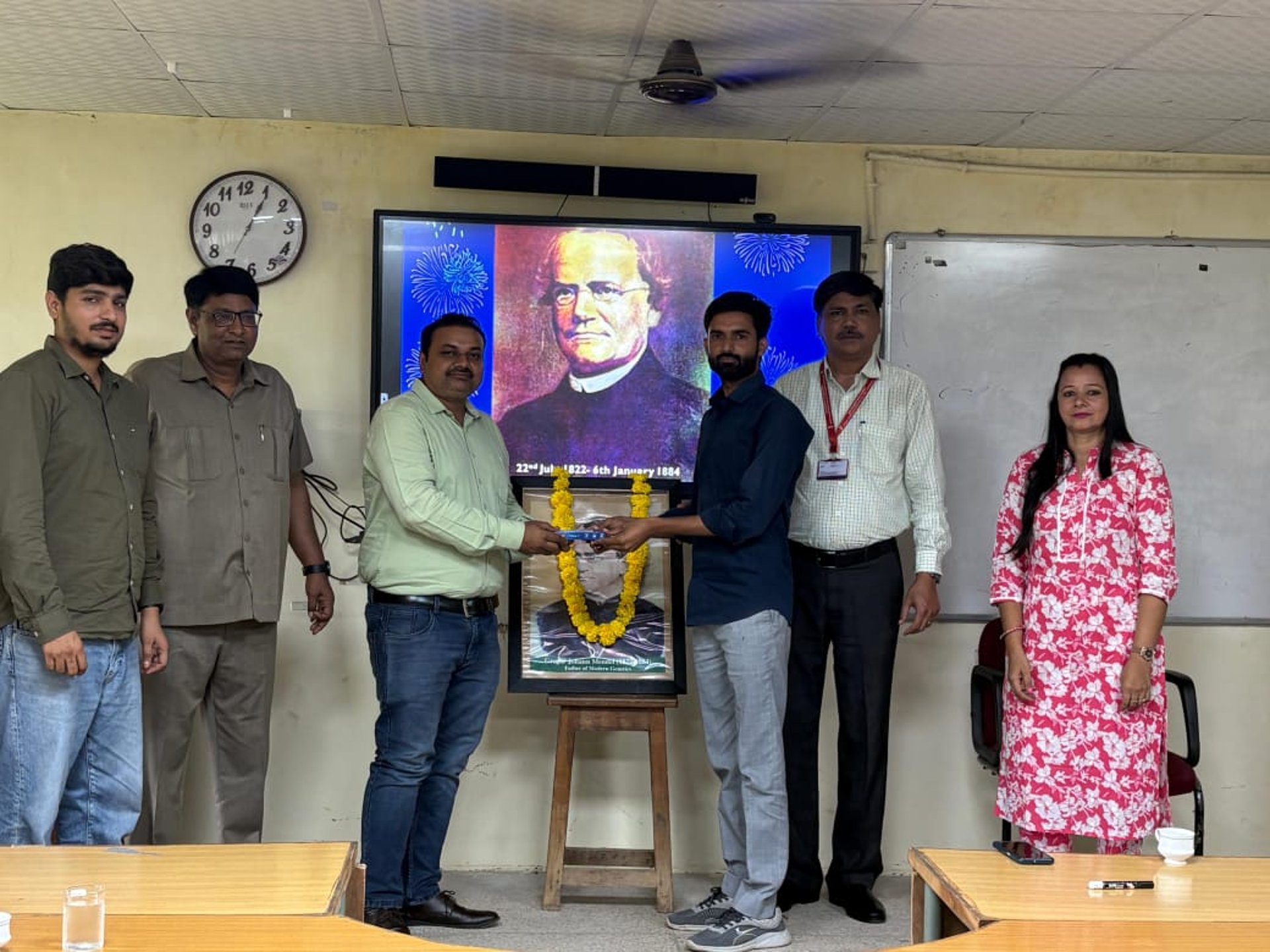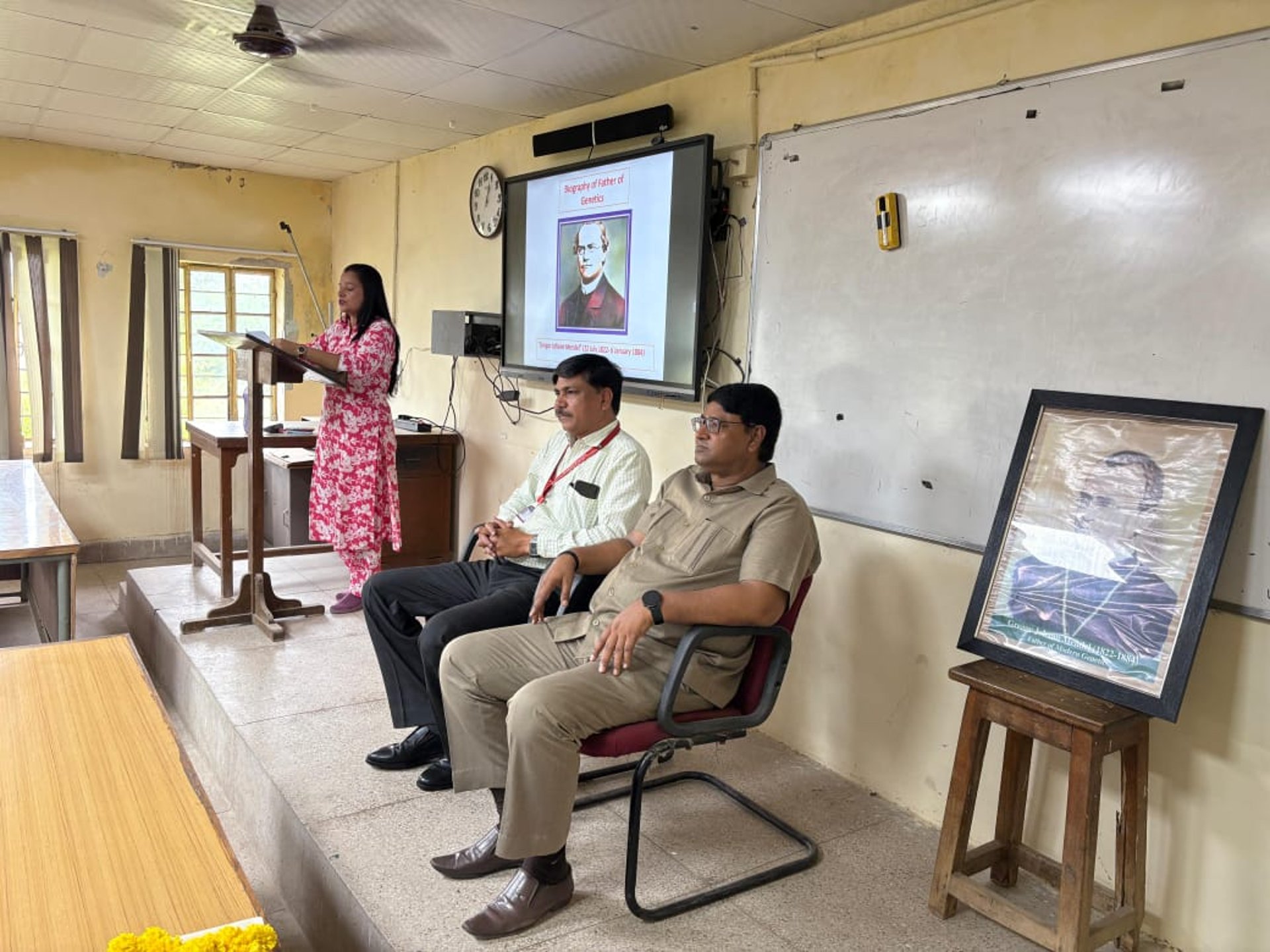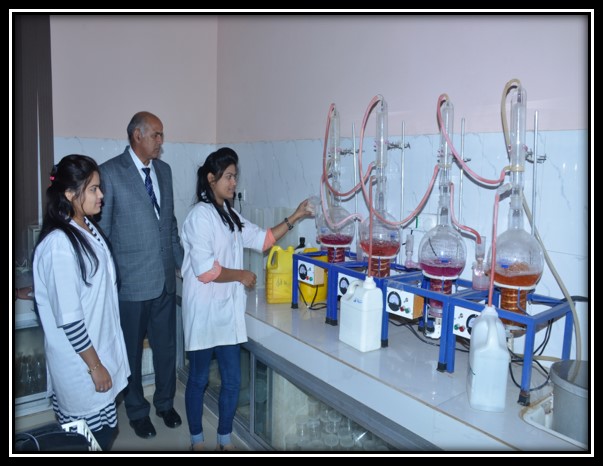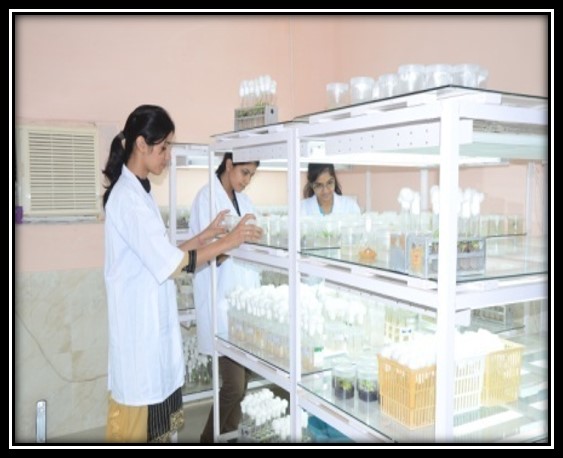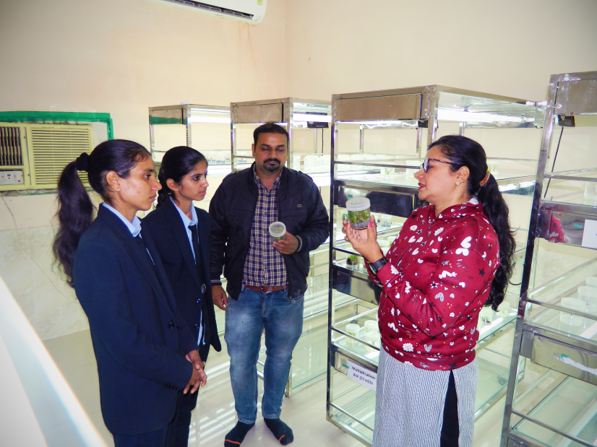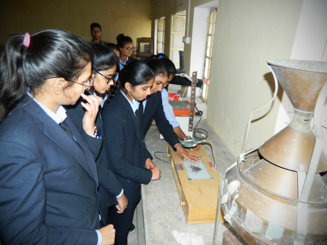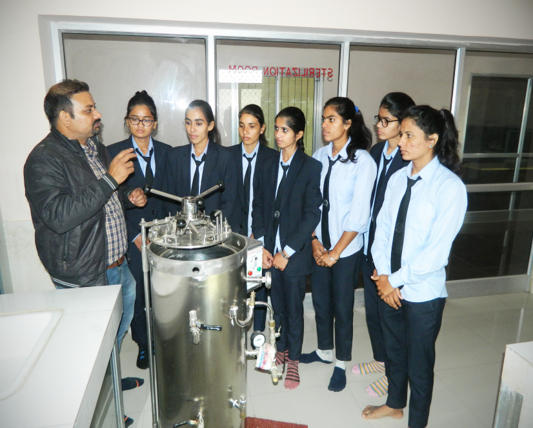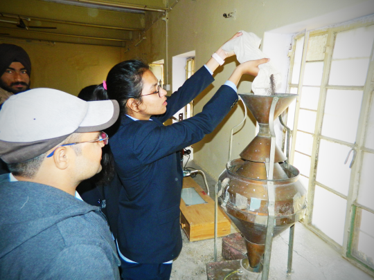Department of Genetics and Plant Breeding
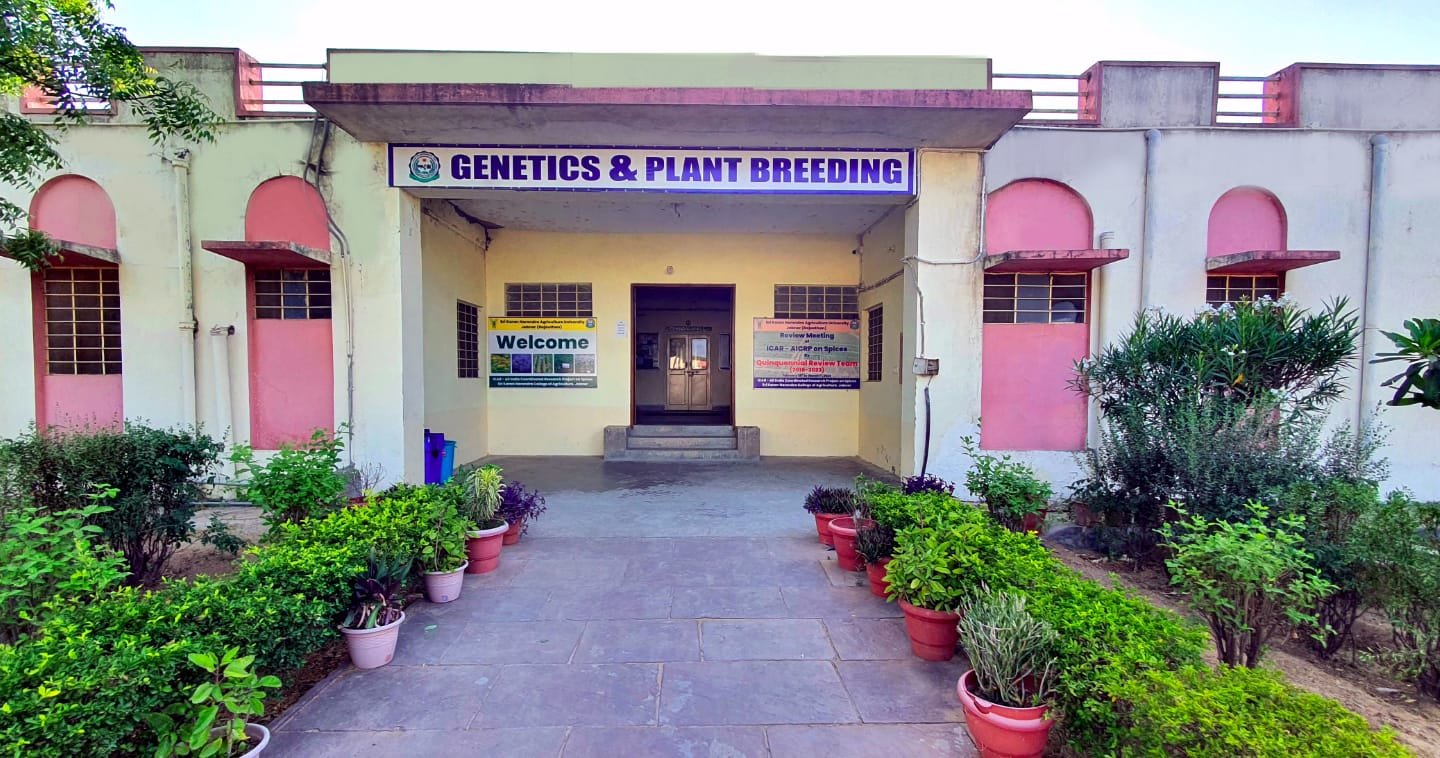

Identity of the department, aims and objectives
The Department of Genetics and Plant Breeding had its beginning in the year 1962 in the form of Department of Agricultural Botany as an integral part of SKN College of Agriculture, Jobner. Later on in the year 1980, the department of Agricultural Botany was bifurcated into the Department of Plant Physiology and Plant Breeding and Genetic. The department is now actively engaged in teaching (both undergraduate and postgraduate), Research and Extension activities. M.Sc. (Ag) and Ph.D. was started in 1966-67 and 1986-87, respectively. The extension activities are carried out by the department in association with the department of Agricultural Extension of this college particularly in the transfer of technology and popularizing improved verities in the state. The department serves as a core facility for running the teaching programmes for UG, PG and Ph.D. students. Presently, many of the students passed out from this department are serving in other SAU’s, ICAR institutes, Banks, Government of Rajasthan and private sectors etc. The department also serves as a key role in various extension activities for dissemination of resource management strategies to the farming community.
Aims and Objectives
The department has following objectives
To offer good quality education and to develop human resource in the area of Plant Breeding and Genetics.
To carryout research in Plant Breeding and Genetics to address to the agricultural needs of the arid zone.
To undertake extension activity to uplift the progress of the farmers of this region.
On going Projects /Schemes
At present the department has following two major research projects;
ICAR-All India Coordinated Research Projects on Spices
ICAR-All India Coordinated Research Projects on Oilseeds (Taramira unit).
Under AICRP on Spices research work on five major seed spices crops viz; coriander, cumin, fennel, fenugreek and Ajwain and under AICRP on Oilseeds there is a separate unit for research on taramira crop.
AICRP on Spices
Objectives
Collection, maintenance and evaluation of indigenous and exotic types of coriander, cumin, fenugreek and fennel.
Selection, multiplication and multilocation testing of superior types.
Evaluation of germplasm for disease and pest resistance.
Standardization of agro-techniques to achieve higher yield and
Quality evaluation.
AICRP on Oil Seeds (Taramira Unit)
Objectives
Survey and collection of local genotypes from different parts of Rajasthan.
Maintenance of germplasm and its evaluation for yield and other attributes including resistance to diseases and pests.
Screening of germplasm with respect to oil, erucic acid and glucosinolate content.
To evolve suitable package of practices for taramira cultivation.
At present the department has following ad-hoc projects:
Centrally Sponsored Scheme –MIDH (Mission on Integrated development on Horticulture) – Development Programme on Spices and Aromatic Plants by DASD, Calicut (Kerala)
Facilities/Infrastructure available in the department
All the required basic facilities of research and teaching are available in the Department. There are one tissue culture laboratory, one laboratory for UG, one laboratory for PG, one seminar/ conference room, three class rooms and rooms for teaching and non- teaching staff. The various equipments available are: microscopes, digital camera, laptops, desktops, LCD, AC, water bath, centrifuge, laminar air flow chamber, pH meter, Oven, Cage house, Poly house etc.
Trainings Organized
Department of GPB organized a one month vocational course on “Seed Production technology” from 30.01.2023 – 28.02.2023 under NAHEP.
Organized one week training programme on “Micropropagation Technologies on Arid Zone Crops” from 03.-10.08.2023 under the aegis of NAHEP.
Organized one week training programme on Artificial intelligence on Agriculture from 11-17.10.2023 under the aegis of NAHEP.
Student of Nagaland Central University, Medziphem, visited at ICAR- All India Coordinated Research Project on Spices at Jobner on 22.01.2024
Celebrated International Biodiversity Day on 22nd May, 2024. On this occasion, poster making competition was organized by the Department on the theme conservation of biological diversity for the MSc and PhD students of the College.
Name: Dr. D.K. Gothwal
Designation: Professor & Head
Specialization: Abiotic Stress Breeding Biometrical Genetics
Conventional Plant Breeding
Contact: 9928845911
Email: gothwaldk.pbg@sknau.ac.in
AEIS Profile Link: https://aeis.icar.gov.in/DINESH3492




Staff Information
Name: Dr. A.C. Shivran
Designation: Professor
Specialization: Crop Management Micro- Irrigation
Contact: 9414517546
Email: acshivran.agro@sknau.ac.in
AEIS Profile Link: https://aeis.icar.gov.in/Amar2281


Name: Dr. S. Marker
Designation: Professor & I/c AICRP on Spices
Specialization: Plant Breeding
Contact: 7376377816
Email: smarker.pbg@sknau.ac.in
AEIS Profile Link:


Name: Dr. Varsha Kumari
Designation: Assistant Professor
Specialization: Molecular Breeding and Micro-Propagation
Contact: 9461242337
Email: varshakumari.pbg@sknau.ac.in
AEIS Profile Link: https://aeis.icar.gov.in/Varsha2252


Name: Dr Ashish Sheera
Designation: Assistant Professor
Specialization : GPB (Specialization) Conventional & molecular breeding, crop improvement in cereals
Contact : 7408212836
Email: sheeraashish.pbg@sknau.ac.in
AEIS profile link: https://aeis.icar.gov.in/ASHISH3497


Name: Dr. Kailash Chandra
Designation: Assistant Professor
Specialization: Conventional and Molecular Breeding
Contact: 8762497958
Email: kailashchandra.pbg@sknau.ac.in
AEIS profile link: https://aeis.icar.gov.in/Kailash765


Name: Dr. Manohar Ram
Designation: Assistant Professor & I/C AICRP (Taramira)
Specialization: Seed Technology and Abiotic Stress on Oil Seed (Taramira & RM)
Contact: 9468563256
Email:manohar.pbg@sknau.ac.in
AEIS Profile: https://aeis.icar.gov.in/MANOHAR2285


Name: Sh. M.K. Meena
Designation: Assistant Professor
Specialization: Conventional and Molecular Breeding
Contact: 7976143738
Email: mkmeena.pbg@sknau.ac.in
AEIS Profile Link: https://aeis.icar.gov.in/Manoj2280


Name: Sh. G.L. Kumawat
Designation: Assistant Professor
Specialization: Plant Pathology, Seed Spices Pathology, Fungal Pathology
Contact: 8946928874
Email: girdhari.pbg@sknau.ac.in
AEIS Profile Link: https://aeis.icar.gov.in/Girdhari2263


Name: Sh. Chiman Singh
Designation: Class-IV
Specialization:
Contact: 7878524032
Email: chimansinghtanwar856@gmail.com
AEIS Profile Link:
Former Heads
Achievements, recommendations and findings
Teaching
So far, 228 students have completed their post graduation and 86 students have earned doctoral degree in Plant Breeding and Genetics. At present student intake capacity is 07 in M.Sc. (Ag) degree and 04 in Ph.D. degree programmes. A large number of P.G. pass outs of the department are well placed in various Govt./private agencies. Some of them are faculties/scientists in our university and other SAUs/ICAR institutions and have been research associate at CCMB and ICRISAT, Hyderabad. Many students have been securing admissions in premier institutions like IARI, HAU, PAU, GAU, BHU and MPAUT for pursuing doctoral degree.
Research
With the operation of AICRP/ad-hoc projects and persuasion of PG research, following studies /achievements are highlighted:
Developed first determinant type of fenugreek variety RMt-305
Developed New Crossing technique in fennel
Development of inbred lines are in progress and likely to develop first hybrid in fennel
Maintained large number of germplasm, consisting of 857 accessions in coriander, 376 in cumin, 291 in fennel, 385 in fenugreek and 45 in Ajwain.
Developed coriander varieties for limited moisture condition
RCr-20, RCr-436 and RCr-684
Developed coriander varieties for irrigated condition
RCr-41, RCr-435, RCr-446, RCr-475, RCr-480 and RCr-728
Developed cumin varieties
RZ-19, RZ-209, RZ-223, RZ-341, RZ-345
Developed fennel varieties
RF-101, RF-125, RF-143, RF-145, RF-178, RF-205, RF-281, RF-157, RF-290, RF-289
Developed fenugreek varieties
RMt-1, RMt-143, RMt-303, RMt-305, RMt-351, RMt-361, RMt-354
Developed Taramira varieties
Five Taramira varieties (RTM 2002, RTM-314, RTM-1351, RTM-1355 and RTM-1624) have been released at state and national level from the centre so far.
Developed Fodder Bajra variety
Raj Bajra Chari-2
Developed Moth bean varieties
Jadia and Jwala
Recently a variety RMt- 354 of fenugreek has been notified at national level. One variety RF- 290 of fennel is under the process of notification and proposal for release and notification of one another fennel variety RF- 289 is under process for submission.
Comprehensive mutagenesis in seed spices viz. coriander, cumin, fennel, fenugreek and arid legumes.
Hybridization breeding programme was started in fenugreek and fennel. The crossing technique in both the crops has been standardized. By pedigree method few lines were identified as promising one and were included in trials. Besides this inheritance of multipodedness and determinate type was also determined. Further work on hybridization / heterosis is in progress in fennel as well as in fenugreek.
Identification of drought source in coriander, cumin and fenugreek is in progress and few lines in these crops have been identified so far for utilization in further breeding programmes.
Package of practices for coriander, cumin, fennel, fenugreek and taramira crops have been developed. Different crop management and protection trials were conducted in coriander, cumin, fennel, fenugreek and Taramira with a view to evolve appropriate technologies/recommendations for each crop. These recommendations have been included in the package of practices which have already been formulated and approved for general adoption.
Soil application of 25 Kg/ha Iron sulphate, 15 Kg/ha Zinc sulphate, 35 Kg/ha Manganese sulphate and 10 Kg/ha Borax at the time of sowing along with three foliar spray of 0.5% Iron sulphate, 0.3% Zinc sulphate, 0.5% Manganese sulphhate and 0.2% Borax at 30, 50 & 70 days after sowing according to low micronutrient status in the soil was recommended recently for obtaining higher yield and returns in cumin crop. Micro nutrients solution for foliar spray should be neutralized with lime solution before spray with half concentration of micro nutrients fertilizer.
Drip irrigation with water equal to 60% of actual evaporation of this duration at 4 day interval along with fertigation of micronutrient fertilizers in fenugreek at 30, 50 & 70 days after sowing according to soil status of available micronutrient content was recommended recently for higher yield and economic returns from fenugreek crop.
The organic production of seed spices crops have not gained much momentum, a few technology has been generated at Jobner centre for production of organic seed spices for better quality.
Developed micro-irrigation techniques for fennel, coriander, cumin and fenugreek.
Fertigation with water equal to 60% of actual evaporation (0.6 IW/CPE ratio) at an interval of 4 days and 80% recommended dose of fertilizers through soluble fertilizers at different growth stages (10, 20, 40, 50, 70 & 80 DAS) of cumin is recommended for improving the yield and WUE of cumin in light textured soils of India (2018-19).
Foliar spray of zinc sulphate @ 0.6% and iron sulphate @ 0.4 % higher yield and net returns could be obtained from fennel crop. Therefore, foliar spray of zinc sulphate @ 0.6 % and iron sulphate @ 0.4 % is recommended for higher yield and net returns in fennel crops. (2022-23).
Intercropping of fennel with garlic higher yield and net returns could be obtained as compared to other systems of intercropping of spices with vegetables. Therefore, intercropping of fennel with garlic is recommended for higher yield and net returns.(2022-23).
Foliar spray of Hexaconazole 5% SC (1.0 ml/litre of water) at the time of initial appearance of disease and second spray should be made after 15 days interval are recommended for the management of powdery mildew disease of coriander (2018-19).
Foliar spray of Propiconazole 25 EC @ 0.05% (10 ml/10 lit.) (first & second spray) + Two foliar sprays of Acetamiprid 20 SP (0.004%) was economical and effective management of coriander powdery mildew and aphid (2022-23).
Soil application of Vermicompost (2t/ha) + seed treatment with Trichoderma harzianum (6g/kg) seed along with Neem Seed Kernal Extract spray @ 5% at 40 days after sowing and repeated thereafter at an interval of 15 days is recommended for wilt control of cumin grown with organic nutrient management practices (2018-19).
Effective and economical management of cumin aphid, first foliar spray of Thiamethoxam 25 WG (25g a.i./ha; 2.5g/10lit. water) should be done at initiation of aphid and second spray of Clothianidin 50 WDG (20 g a.i./ha; 1.0g/10lit. water) should be made after 10 days of the first spray (2018-19).
Foliar spray of Hexaconazole 5% SC (1.0 ml/litre of water) at the time of initial appearance of disease and second spray should be made after 15 days interval are economical and effective management of cumin powdery mildew in ZREAC (2019-20).
Three foliar sprays of Kresoxym methyl 44.3 SC @ 0.044% (10 ml/ 10 lit. water) was economical and effective against cumin blight (2021-22).
Two foliar sprays of thiamethoxam 25WG (0.0084%) was economical and effective against cumin aphid (2022-23).
A number of technologies (POPs) were approved in ZREAC (Rabi and Kharif) to update the package of practices for taramira growing areas with respect to proper sowing time, fertilizer requirements, integrated nutrient management, micronutrient studies, foliar spray of Agro-chemicals, crop sequences Orobanche management in mustard, efficacy of FYM and vermicompost, phosphorus management in taramira, evaluating different farming systems and comparing taramira and mustard.
Adoption of guar-taramira sequence and application of 60 kg sulphur ha -1 to taramira was found more remunerative over fallow-taramira sequence.
Application of RDF + FYM @ 10 t + 40 kg sulphur + 25 kg Zinc sulphate + 1 kg boron/ha in taramira was found remunerative.
Thiourea (0.1%) spray alone increased the seed yield of taramira upto 11.8% over control. Similarly application of sulphur at 40 kg/ha gave 21.4% higher seed yield than control.
Soil application of 20 kg ZnSo 4 significantly increased the seed yield of taramira and gave the maximum net returns and foliar spray of 0.25% zinc sulphate twice (pre flowering and flowering) significantly increased the seed yield of taramira over control and 0.25% spray once.
Application of 125% fertility resulted in significantly higher seed yield and net returns of taramira but proved at par with 150% RF level.
The lowest mean population of Orobanche was observed in the plots that were treated with two drops of soybean per young shoot of this weed. Directed spray of 0.25% or 0.50% glyphosate after emergence of Orobanche and pre emergence pendimethalin at 1.5 kg/ha. The maximum seed yield was obtained with pendimethalin at 1.5 kg/ha, followed by directed spray of glyphosate at 0.5% and soybean oil treatments.
Progressive increase in level of FYM up to 6 tonnes/ha resulted significantly higher seed yield and net returns. Application of vermicompost at 2 tonnes/ha also provided significantly higher seed yield.
Seed yield and net returns in taramira were highest when phosphorus was applied 50% through SSP + 50% FYM. The maximum yield and net returns were obtained when seed was treated with PSB + VAM.
One irrigation at flowering stage recorded the highest taramira equivalent yield, net returns and B: C ratio
Seed inoculation with Azotobacter and PSB. The maximum seed yield was obtained under the treatment Azotobacter & PSB seed treatment + 100% N & P fertility level.
Application of Pendimethalin @ 1.0 kg/ha at pre emergence were found at par with weed free treatment in term of yield (15.85 q/ha) and gross return.
Foliar spray of agro-chemical thiourea (0.05% ) at 50% flowering and 50% pod filling stage effectively mitigates the terminal drought stress in taramira and significantly increases the seed yield.
Irrigation at 0.6 IW/CPE ratio with hydrogel 2.5 kg/ha is recommended to enhance the water use efficiency and higher seed yield of mustard.
Sowing on 10 to 25 October at spacing 30x10/20 cm is recommended for higher seed yield of mustard.
The maximum seed yield and net returns were obtained with application of 100:40:30 kg NPK ha-1 is recommended for mustard growing areas in Rajasthan.
Application of hydrogel @5.0 kg/ha along with two foliar spray of salicylic acid @ 200 ppm at flowering and siliqua formation stage significantly increased seed yield of mustard which fetches maximum net returns.
A sick plot of Orobancheis available for screening of Brassicaceae species.
Quality aspects on the seed spices for improving the quality to make them more attractive for the export are being worked out.
AICRP on Spices, Jobner got best centre award by ICAR - All Indian Coordinated Research Project on Spices during the year 2016
AICRP on Oil Seed- Taramira got best centre award by ICAR - All Indian Coordinated Research Project on Oil Seeds during the year 2016
AICRP on Spices, SKNAU, Jobner got Best Center Award 2022-23 for the development of high yielding varieties and sustainable production technology in seed spices in 34th Annual Workshop of ICAR-AICRP on Spices held at College of Horticulture, UHS, Bangalore during 29 Oct.-1 Nov., 2023.
Standardization of regeneration protocol of cumin, coriander and fennel.
Standardization of micropropagation protocol in Aloe vera
Standardization of Aloe vera Gel preparation procedure
Standardization of Agro techniques of Aloe veraandprepare farm bulletins.
Possibility of enhancing the effectiveness and competitive ability of a rhizobium strain using induced Azide resistance and inducedhypermotility, respectively.
Assessment of genetic diversity using storage seed protein profile generated by SDS-PAGE in cowpea and fennel.
Genetics of salt tolerance in wheat.
Biometrical approaches to enhance yield improvement in crops like, taramira, seed spices, wheat, barley, pearl millet, tomato and brinjal.
The details of different projects operated and being operating in the department
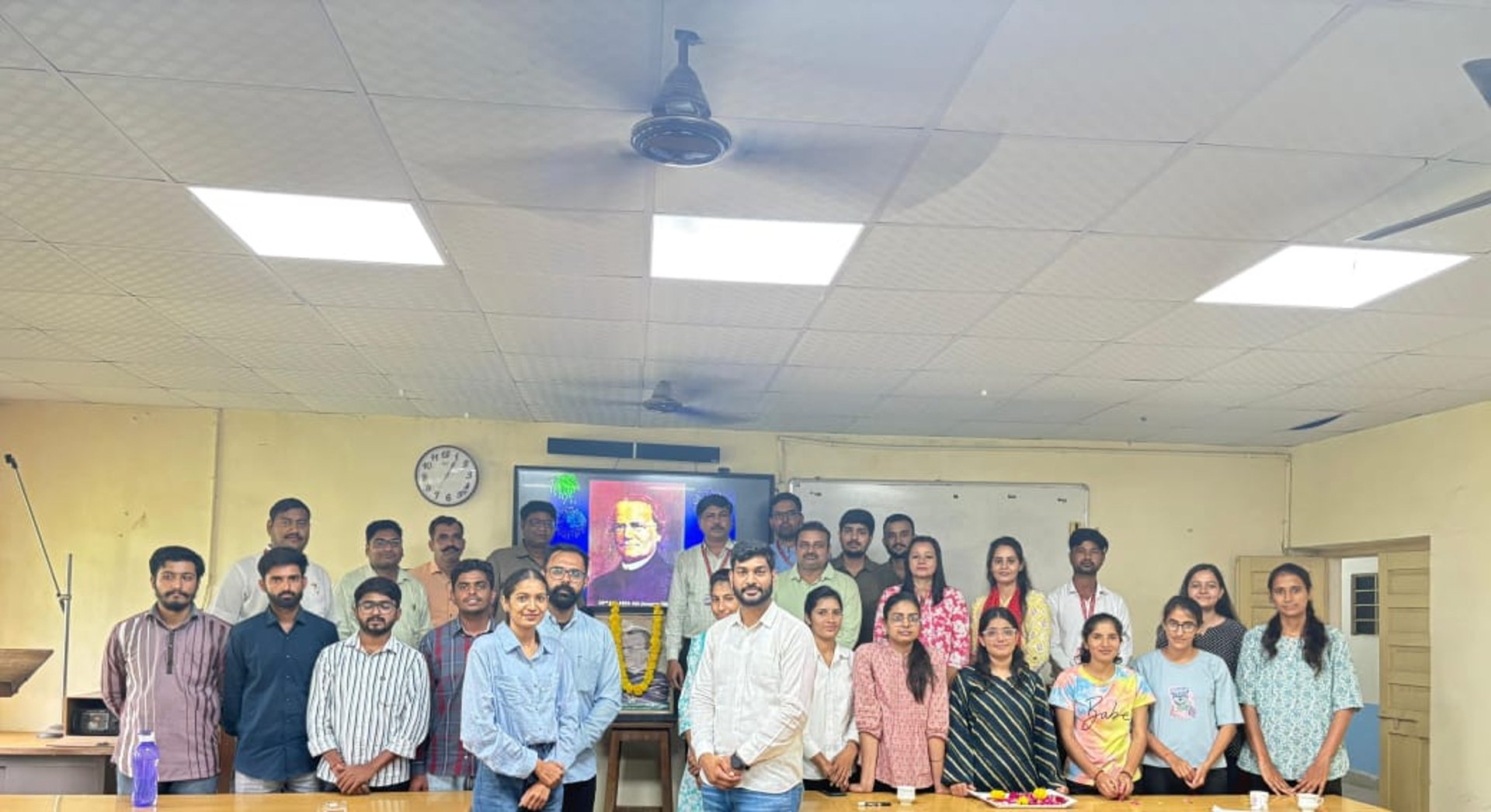
Departmental Gallery
